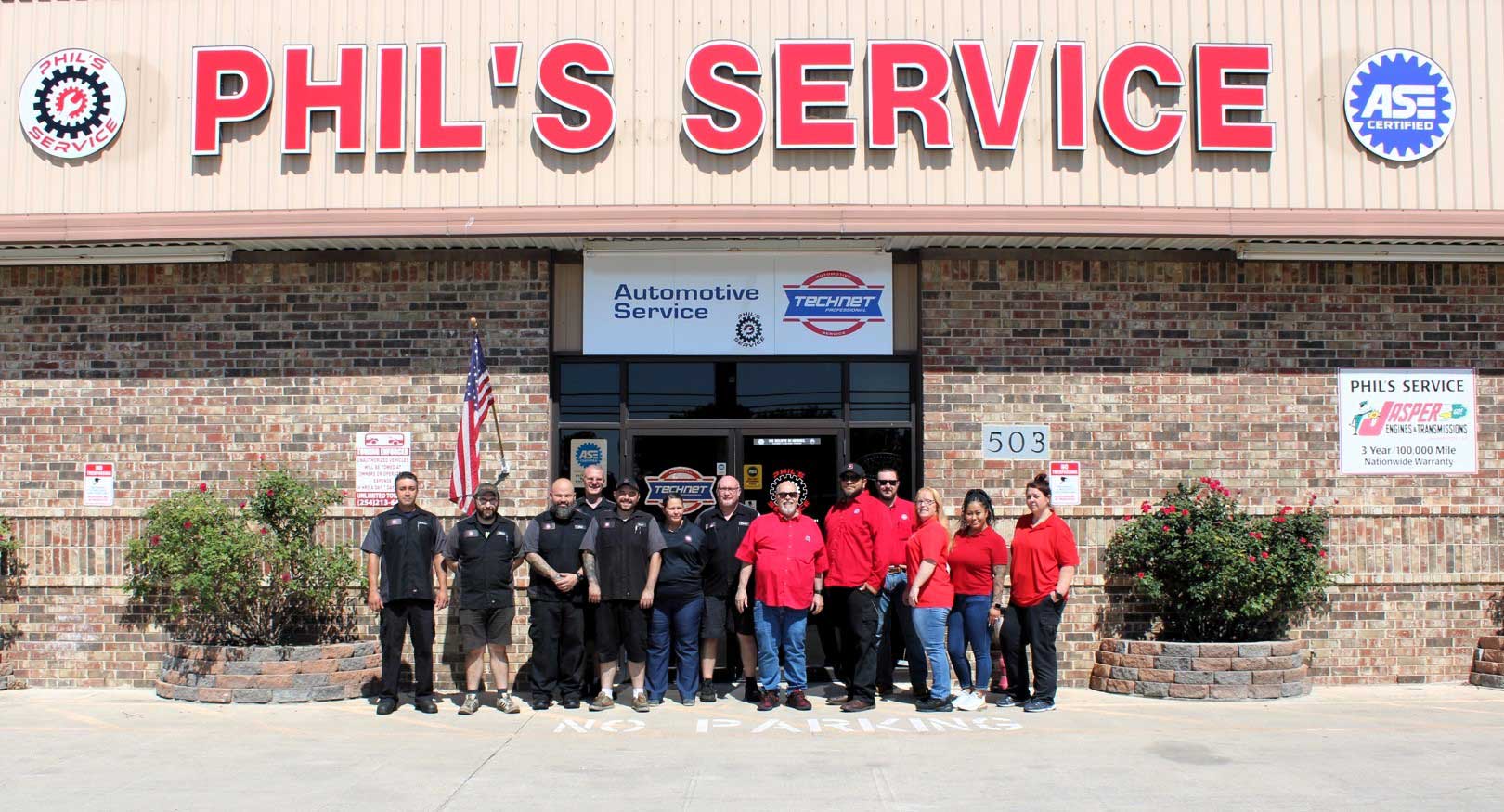Can Dirty Oil Ruin Your Engine?
When was the last time you changed your oil in your vehicle?
If you can't even remember the last time you had an oil change, its time to pay attention!
Motor oil in a car is like blood to our body. It delivers everything needed to keep your car running smoothly.
The Problem with car maintenance for some people is they don't do any routine check-ups on anything until something doesn't work anymore, and in most cases, that's when it's too late.
Have you ever wondered what can happen to your vehicle if left with dirty oil? In this article, we'll explore how to keep your engine in tip-top shape and avoid costly damage.
What Does Motor Oil Do?
The engine of your car has many moving parts, and these parts are constantly moving alongside each other. In order for these parts to move efficiently and effectively, there needs to be some type of lubrication between these parts. That's where motor oil comes into play. Oil provides lubrication for gears, crankshaft, and bearings, there isn't much friction between these parts and helps these components to last longer.
An engine gets pretty hot when operating, and the engine oil helps cool the engine down to keep it functioning at a safe temperature.
What Does Dirty Oil do to Your Car?
When time goes by, your oil will breakdown and degrade. The oil will be contaminated with grit and grime from everyday engine use and will eventually turn from a clear brown color to a solid black. When your oil loses its viscosity, it can be even more damaging than having low oil in your car.
This loss of viscosity can cause parts in your engine to wear at a faster rate and can become actively corrosive. One of the first signs you'll see when your oil becomes dirty is sluggish acceleration and poor fuel economy.
If you drive on dirty oil for a long time, you have the potential of permanently damaging your engine. Let's break this process down from the beginning of trouble to permanent damage:
Build up
As stated above, everyday grit and grime will be introduced into oil, lowering its viscosity. This dirt will clog your filter cycle its pollutants throughout your engine.
Internal Parts Wear
After the build-up phase, there comes a time when the build gets too out of control that the internal components of your engine are wearing at a fast rate. At this point, your motor may struggle to function, and you may experience stalls and hard starts.
Chemical Compounds in the Oil Lose Their Effectiveness
Motor oil comes blended with additives that serve a lot of different purposes that benefit your engine. These additives help reduce rust, lower friction to the components, and aid in the oil's ability to control temperatures.
Additives are compromised from lack of poor maintenance, and internal components will wear down quicker.
Engine Temperatures Rise
At this point, the oil will thicken and will lose its ability to dissipate heat the way it should. This will cause your engine to overheat from time to time. Once your engine starts overheating, this is when you will begin to hear loud noises coming from your engine.
When you hear engine knock, this is when the heat is starting to warp the engine rods and other components.
Oil Becomes Sludge
This is the beginning of the downfall. When the oil turns into sludge, this is where the oil becomes so thick that the moving parts of your engine won't be able to move and will seize up. This, mixed with high temperatures, marks the beginning of the end of your engine.
The Engine Dies
With no lubrication in the engine, this leads to parts not moving any longer and seizing up. The components of the engine have worn down to become unusable anyway, and with high heat temperatures, bearings, rods, pistons, and crankshaft are warped beyond repair. This is the point where your engine needs to be sent to the scrap yard.
How Often Should I Get an Oil Change?
This depends on your manufacturer's recommendations. Most cars state that you should change your oil every 3,000 miles or every three months. Other manufacturers say every 5,000 to 10,000 miles.
Whatever your magic mileage number may be, the vital thing to remember is to get the oil changed at least every four months.
Conventional or Synthetic?
Conventional oil is cheap and inexpensive and works as described. Newer synthetic oil will cost a little bit more but can provide many benefits that conventional oil doesn't have.
For one, Synthetic oil is refined better and lacks impurities that conventional oil can have. This preserves the viscosity of the oil, gives you better protection during extreme temperatures, and the additives will last longer when you go synthetic. Along with lasting longer, the natural ability for synthetic to flow through your engine will give you a significant gain for better gas mileage and power.
Dirty Oil Can Cost You Thousands
There's nothing worse than the feeling of seeing your car enter the scrap yard because of dirty oil when it all could've been avoided with inexpensive and consistent oil changes.
Remember, small problems will eventually turn into more significant problems if you don't take care of them, and regular maintenance can avoid any problems at all. If you need help with your vehicle, contact us today, and we can service all of your car's needs.
Have you ever wondered what can happen to your vehicle if left with dirty oil? Explore how to keep your engine in tip-top shape and avoid costly damage.
When was the last time you changed your oil in your vehicle?
If you can't even remember the last time you had an oil change, its time to pay attention!
Motor oil in a car is like blood to our body. It delivers everything needed to keep your car running smoothly.
The Problem with car maintenance for some people is they don't do any routine check-ups on anything until something doesn't work anymore, and in most cases, that's when it's too late.
Have you ever wondered what can happen to your vehicle if left with dirty oil? In this article, we'll explore how to keep your engine in tip-top shape and avoid costly damage.
What Does Motor Oil Do?
The engine of your car has many moving parts, and these parts are constantly moving alongside each other. In order for these parts to move efficiently and effectively, there needs to be some type of lubrication between these parts. That's where motor oil comes into play. Oil provides lubrication for gears, crankshaft, and bearings, there isn't much friction between these parts and helps these components to last longer.
An engine gets pretty hot when operating, and the engine oil helps cool the engine down to keep it functioning at a safe temperature.
What Does Dirty Oil do to Your Car?
When time goes by, your oil will breakdown and degrade. The oil will be contaminated with grit and grime from everyday engine use and will eventually turn from a clear brown color to a solid black. When your oil loses its viscosity, it can be even more damaging than having low oil in your car.
This loss of viscosity can cause parts in your engine to wear at a faster rate and can become actively corrosive. One of the first signs you'll see when your oil becomes dirty is sluggish acceleration and poor fuel economy.
If you drive on dirty oil for a long time, you have the potential of permanently damaging your engine. Let's break this process down from the beginning of trouble to permanent damage:
Build up
As stated above, everyday grit and grime will be introduced into oil, lowering its viscosity. This dirt will clog your filter cycle its pollutants throughout your engine.
Internal Parts Wear
After the build-up phase, there comes a time when the build gets too out of control that the internal components of your engine are wearing at a fast rate. At this point, your motor may struggle to function, and you may experience stalls and hard starts.
Chemical Compounds in the Oil Lose Their Effectiveness
Motor oil comes blended with additives that serve a lot of different purposes that benefit your engine. These additives help reduce rust, lower friction to the components, and aid in the oil's ability to control temperatures.
Additives are compromised from lack of poor maintenance, and internal components will wear down quicker.
Engine Temperatures Rise
At this point, the oil will thicken and will lose its ability to dissipate heat the way it should. This will cause your engine to overheat from time to time. Once your engine starts overheating, this is when you will begin to hear loud noises coming from your engine.
When you hear engine knock, this is when the heat is starting to warp the engine rods and other components.
Oil Becomes Sludge
This is the beginning of the downfall. When the oil turns into sludge, this is where the oil becomes so thick that the moving parts of your engine won't be able to move and will seize up. This, mixed with high temperatures, marks the beginning of the end of your engine.
The Engine Dies
With no lubrication in the engine, this leads to parts not moving any longer and seizing up. The components of the engine have worn down to become unusable anyway, and with high heat temperatures, bearings, rods, pistons, and crankshaft are warped beyond repair. This is the point where your engine needs to be sent to the scrap yard.
How Often Should I Get an Oil Change?
This depends on your manufacturer's recommendations. Most cars state that you should change your oil every 3,000 miles or every three months. Other manufacturers say every 5,000 to 10,000 miles.
Whatever your magic mileage number may be, the vital thing to remember is to get the oil changed at least every four months.
Conventional or Synthetic?
Conventional oil is cheap and inexpensive and works as described. Newer synthetic oil will cost a little bit more but can provide many benefits that conventional oil doesn't have.
For one, Synthetic oil is refined better and lacks impurities that conventional oil can have. This preserves the viscosity of the oil, gives you better protection during extreme temperatures, and the additives will last longer when you go synthetic. Along with lasting longer, the natural ability for synthetic to flow through your engine will give you a significant gain for better gas mileage and power.
Dirty Oil Can Cost You Thousands
There's nothing worse than the feeling of seeing your car enter the scrap yard because of dirty oil when it all could've been avoided with inexpensive and consistent oil changes.
Remember, small problems will eventually turn into more significant problems if you don't take care of them, and regular maintenance can avoid any problems at all. If you need help with your vehicle, contact us today, and we can service all of your car's needs.


